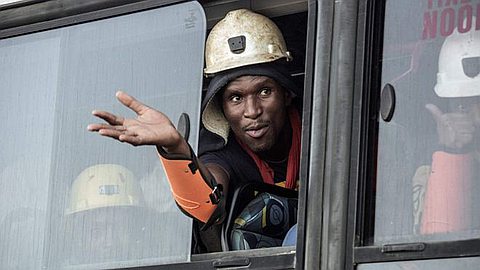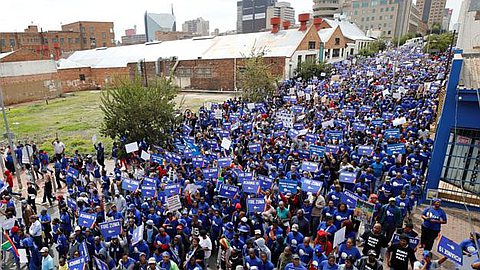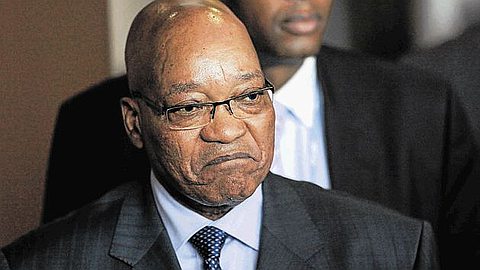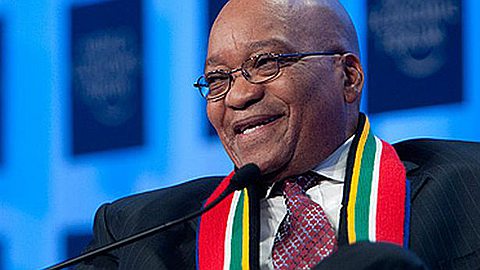South Africa Banks Tumble as Junk Rating Puts Profit at Risk
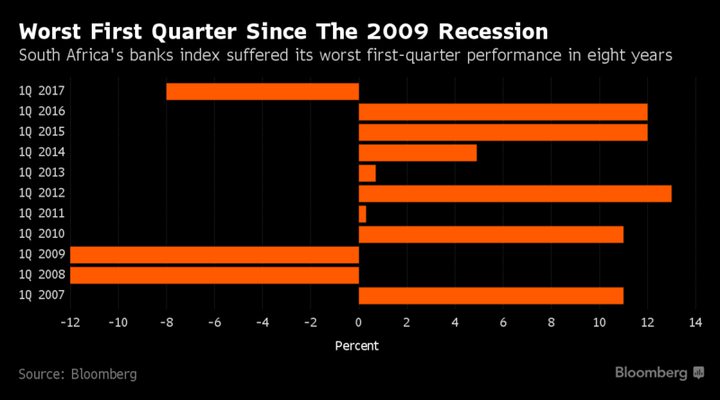
South Africa’s six-member banks index, which includes Standard Bank Group Ltd. and Barclays Africa Group Ltd., has plummeted more than 8 percent since President Jacob Zuma fired Finance Minister Pravin Gordhan, making it the country’s worst-performing stocks gauge this year. Barclays Africa, still waiting for its London-based parent company to sell down its holdings, has been hit the hardest, sliding 16 percent in 2017. The rand has also weakened against major currencies while yields on benchmark government bonds have soared.
The S&P downgrade “is bad for banks’ net return on assets and return on equity, not just via lower performance on existing assets, but also via a higher incidence of non-performing loans,” Adrian Saville, chief strategist at Citadel Wealth Management, said in emailed comments on Tuesday. “The real issue is the impact on economic growth, industrial performance and employment. There is an unambiguous negative relationship between economic growth and bank assets.”
S&P cut South Africa’s foreign-currency debt to junk status on Monday night, just two trading days after Zuma axed Gordhan and replaced him with former home affairs minister Malusi Gigaba, a rookie when it comes to finance and business. While the nation had an investment grade rating for 17 years, S&P said its downgrade was in response to Zuma’s cabinet purge. Moody’s Investors Service said on Monday its ratings were on review.
South Africa Cut to Junk First Time Since 2000 After Zuma Purge
Short-term volatility in bank stocks is expected, Mike Brown, chief executive officer of Nedbank Group Ltd., said by email. “Our cost of capital and certain borrowing costs, mainly in debt-capital markets, will increase, meaning we will charge more for our loans. As consumer finances come under more pressure, affordability will naturally decline, even if lending criteria stays the same.”
South Africa’s banks have been here before. They suffered the firing of Finance Minister Nhlanhla Nene in December 2015. That wiped more than 155 billion rand ($11.2 billion) off the index’s market value in two days. This time around the ousting of the minister has cost the banks 61 billion rand so far.
While the banks’ debt will have to be downgraded alongside the sovereign cut, that’s unlikely to lead to a banking crisis, according to Peter Attard Montalto, a London-based economist at Nomura International, who spoke on Bloomberg Television. The political crisis isn’t going to threaten financial stability, he said, because the banks are well capitalized.
Before Gordhan was fired and S&P changed its rating, South Africa’s biggest banks were considering easing lending criteria for the first time in five years because the economic outlook was better than last year and bad-loan charges were at a multi-year low.
“Banking shares get priced, or valued, relative to the 10-year government bond yield,” said Adrian Cloete, a banks analyst at PSG Wealth in Cape Town. “A weaker rand also causes investors to switch out of local South African shares like banks, retailers and local property counters.”
Still, even with the downgrade and the threat of more to come, banks’ average return on equity remained above 16 percent last year, according to Ernst & Young LLP research, and may continue to beat the ratios of their peers in Europe and the U.S.
“We have 50 percent more capital than in the global financial crisis and all South African banks came through that event fine,” Nedbank’s Brown said. “Banks are well prepared for this event and have conducted numerous stress tests -- I’m confident all will remain stable in the months ahead.”
Zuma’s shock decision to boot his finance minister and load his cabinet with loyalists has drawn rare public criticism by top party officials, including deputy Cyril Ramaphosa and former President Kgalema Motlanthe, who on Monday called for Zuma to step down. A wider group of ANC leaders will meet Tuesday to discuss the cabinet reshuffle, while opposition parties are pushing for a vote of no-confidence in parliament.
“The night of the long knives is negative on all,” Saville said. “We need transparency and consistency in decision making. Zuma has been poor on both.”

